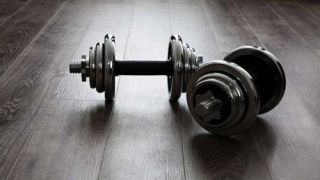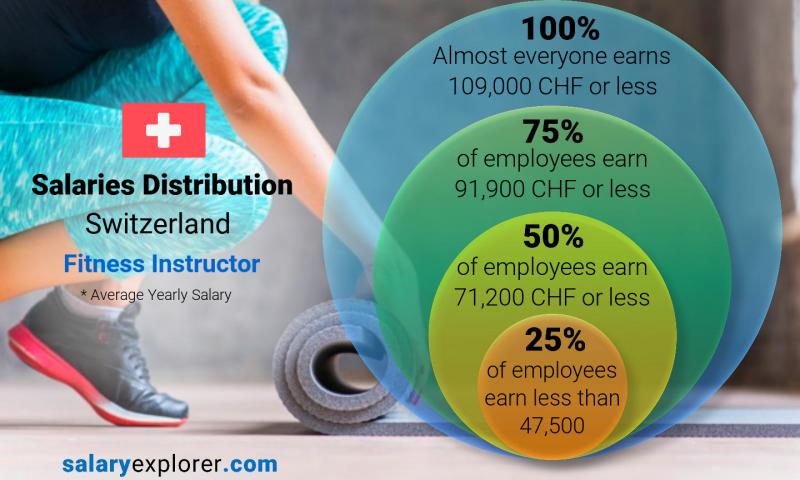
Denver is a great place to find a job as personal trainer. While the metro area is full of opportunities, it's not your only option for personal trainer jobs. It's also possible to find employment in non-metropolitan regions like North Central Colorado. This region was home to the second highest number of personal trainer jobs.
Localities
There are many places where you can find Personal Trainer jobs for Denver, CO. The best areas to look for Personal Trainer jobs are in the vicinity. These cities have many health clubs and fitness centers, and there are plenty of opportunities to work with clients in these facilities. Denver personal trainers make an average of $98K annually.
Colorado is home of a large number personal trainers. Colorado is home to the fourth-highest concentration of personal trainers. Personal trainers in Denver can find work at a local gym or with national chain employers. Twenty-four Hour Fitness, for example, has 15 locations in Colorado.
Salary
Denver is a great place for personal trainers to earn a decent income. According to the Colorado Department of Labor and Employment, there were 7,512 personal fitness professionals employed in the state in 2013. Denver is fourth in the state for personal trainers.

The average salary of personal trainers in Denver, Colorado is $50K. You might earn even more if you are in a senior role. For example, you could work as a Senior Technical Trainer, Applications Trainer, or Analytics Trainer. Depending on your location and experience, you could earn anywhere from $50K to $98K a year.
Requirements
There are many options for personal trainers in Denver. You can work one on one with clients or train large groups. It doesn't matter what kind of training you do. There are many requirements you must fulfill in order for your business to succeed.
Certification is the first requirement. The certification must be from an accredited body. You also need relevant education and experience. The education and training you'll receive should include a lot of detail and illustrations of exercises. Too many certifications focus on theory and do not provide any practical training. The course should also cover topics such as sports injuries, first aid, and running a personal training business.
Potential earning
Personal trainers are available to help clients achieve their goals. Some personal trainers work with professional athletes, while others train non-athletes. In both cases, they create custom training programs, establish rapport with clients, and perform fitness evaluations. They may also offer nutritional counseling or exercise programs. This is a rewarding career that can lead to fulfillment.
In Colorado, the number of personal trainers is relatively high. According to the Colorado Department of Labor and Employment in 2013, there were 7,512 personal trainers in Colorado. This makes Colorado one of the most desirable states for personal trainers. Colorado's 47 percent of personal trainer jobs were located in Denver. In addition, the city ranked eighth among all states for employment of personal trainers.

Perks
Personal trainer jobs in Denver might be for you if you're interested in working in a fitness industry. This job requires you to develop strong relationships with clients. You should understand their personal needs and prescribe the best fitness solution for each client. You will be expected to meet certain productivity goals. To succeed in this field, you must have good teaching skills. You must also be able to motivate people from all levels of fitness.
Moreover, Denver-based fitness companies offer several perks to their employees. Chuze Fitness provides a 401K for its full time employees after one-year. The company is an Equal Opportunity Employer, and will consider all applicants based on merit. It also conducts background checks for some positions.
FAQ
Which Is More Important: Exercise, Diet, or Sleep?
This depends on what you're trying to achieve. If you want to lose weight, diet is the most important factor. To build muscle mass, exercise is crucial. Sleep is not as important as it seems, since it has no effect on how you perform throughout the day.
Does exercise cause me to gain weight?
Not at all. Exercising can help you maintain your current weight. Exercise regularly will build muscles and increase metabolism. You'll burn more calories per day if you do. This means that you won't store so much fat.
Can I exercise after eating?
It depends on the type and intensity of your exercise. Avoid strenuous exercises after meals. It could cause stomach cramps. Focus instead on light aerobic exercises like biking or walking briskly.
What is the importance of good nutrition?
Nutrition is important for our health and well-being. Healthy diets include whole grains, fruits and vegetables as well as lean protein and dairy. Being active and eating healthy foods can help us be more fit, which results in better overall health.
Is it safe?
Outside exercise is encouraged whenever possible. However, the temperature of the air is not the only thing that can determine whether you are safe to exercise outdoors. Wind speed, humidity, precipitation, and visibility also play a role. Layers of clothing will protect you from rain and wind chill if you exercise outdoors in inclement climates.
What happens to me if I don’t sleep enough?
Your brain won't receive enough sleep if it doesn't get the signals it needs to regulate hormones, chemicals that regulate appetite and metabolism. This can lead to weight gain and excess eating. Insufficient sleep can lead to stress, which can cause overeating.
Can I eat during my exercise?
Yes. Yes. You can eat whatever you want while you exercise. Watermelon, grapes (or carrots or celery), watermelon, grapes, apples, bananas or apples are all low-calorie snacks. These foods have nutrients that can help you perform better in your workouts.
Statistics
- Physical activity confers the following maternal and fetal health benefits: a decreased risk of pre-eclampsia, gestational hypertension, gestational diabetes (for example, 30% reduction in risk) (who.int)
- Globally, 28% of adults aged 18 and over were not active enough in 2016 (men 23% and women 32%). (who.int)
- One study showed that adults who watch more than 4 hours of television daily had an 80% higher risk of death from cardiovascular disease. (heart.org)
- According to the Centers for Disease Control and Prevention, chronic diseases cause 7 out of 10 deaths in the U.S., and treating chronic diseases accounts for 86% of U.S. healthcare costs. (mana.md)
External Links
How To
How to burn belly fat faster
Belly Fat is often thought of as a problem when trying to lose fat. However, Belly Fat can be beneficial if you really think about it. It's the amount of fat stored around your stomach that protects your organs from getting damaged. So let's see how to burn belly fat fast.
The main factors that contribute to our body fat accumulation are stress and inactivity. The cortisol hormone stimulates stress which makes us hungry. Cortisol increases insulin levels in our blood. The excess calories are stored as fat by insulin. A lack of sleep leads to adrenaline being released into the system which causes an increased appetite. These extra calories can easily be lost through exercise.
There are many ways you can reduce belly fat. Any one of these can be tried, depending on how much you have to spend. These are some ways to quickly lose belly fat.
-
You can eat less. Don't eat three large meals at once. You'll eat fewer calories this way.
-
Drink plenty of fluids. Water flushes out toxins and keeps you hydrated. Water before each meal can help you feel fuller longer and reduce your appetite so that you don't overeat.
-
Avoid snack foods that are unhealthy. If you're looking for quick fixes, snack foods like chips, cookies, candies, etc. It might sound tempting. Avoid these unhealthy treats. They are full of empty calories, too much sugar, and can be very fattening. Instead, choose healthy alternatives like fruits, veggies, nuts, seeds, and whole grains.
-
Strength training should be done at least three times per week. Strength training builds muscle mass that burns more calories, even when it is done while you rest. Strengthening your bones, muscles as well ligaments, joints, tendons, heart and lungs.
-
Stretching and walking are good habits. Stretching is a great way to increase flexibility and mobility. This helps reduce back pain. Walking can help you burn calories.
-
Reduce alcohol intake. Avoid alcohol.
-
Reduce your weight gradually. First, determine your current weight. Then calculate your ideal weight by adding 5% to 10% of your total body weight. Once you have calculated your target body weight, you can begin to cut calories by 500-1000 calories every day until your goal is reached.
-
Avoid processed food. These foods are high in salt, sugar, preservatives, and other harmful ingredients. These processed foods are often convenient, but they lack enough nutrients for good health.
-
Don't skip breakfast! A good breakfast can improve concentration, memory, as well as energy level. Include protein (like eggs) and fiber, like oats, in your breakfast.
-
Have regular bowel movements. Constipation or irregularity can lead to gas and bloating. This can be prevented by drinking plenty of water and increasing fiber intake.